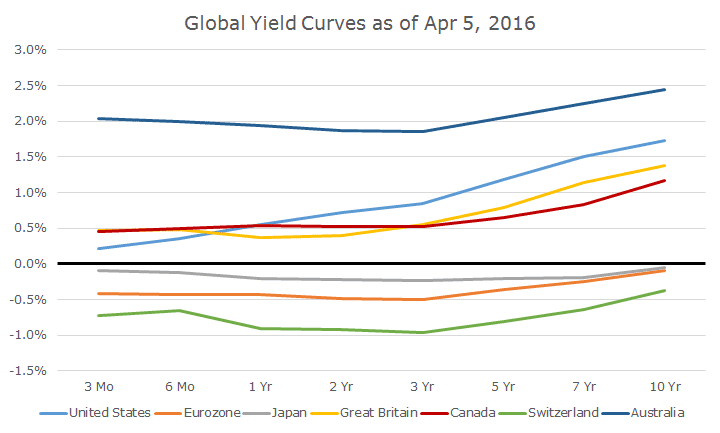It looks like you're new here. If you want to get involved, click one of these buttons!
That point of recognition may be a long way off. The baby boomers have in their memory the early 1980s and their high interest rates. I think that is part of the reason people got into gold and expect inflation. They see the Fed 'printing money' and they think that it will cause inflation. They think it has to cause inflation all that money printing. There are many more pressures offsetting the Fed actions that the Fed actions don't really do anything.This is one of the better threads since I joined.
Any thoughts on how this liquidity trap will affect stocks? (I do not think I'm going into stocks anytime soon.)
My guess is that we have not come to the 'point of recognition' about the trap. Once that happens I'm guessing it would be a negative for stocks and then a trading range at a low p/e. Possibly, there would be another internet stock crash.
Not exactly. The first link in October 2015 he says junk bonds are at 4 year lows. REALLY WRONG! The second link from this January he says junk bonds are trading at levels below those seen during 2012. REALLY WRONG! I would have to look further but he also said something to the same effect late this summer. He says nothing about spreads but simply junk bonds. When I saw him on CNBC this summer he was using a chart of JNK. Gundlach likes to make news enhancing announcements. I hope there is a crash in junk bonds so he can be proven right about that many times prediction.i hope you're now suggesting that Gundlach doesn't know how to calculate total return for a bond fund.
he was referring to spread widening which started in August. junk spreads went to widths that were unheard of outside a full blown recession at the time (and earlier this year.) they have contracted since as you and others have noticed...
best, FATotal return charts are the only way to go with bond funds as they include reinvested dividends. Price only charts for bond funds don't *remotely* begin to paint an accurate picture. Don't mind me, just one of my pet peeves. I recall Gundlach saying on CNBC late last summer how junk bonds (JNK) were making 4 to 5 year lows. Nothing could have been further from the truth as he was just looking at a price only chart and completely ignoring dividends.
Here's one source. Stockcharts.com shows total return charts by default. You can also view price-only charts.where to find a good source for a total return chart.
http://blogs.barrons.com/focusonfunds/2016/04/07/unprecedented-outflows-from-u-s-stock-funds-could-leave-remaining-investors-holding-the-bag/?mod=BOLBlogEach year, editors at Morningstar pick the best 500 funds from the universe of roughly 8,000 that they cover and create a list known as the Morningstar Mutual Fund 500. Nearly half of these funds have seen at least a 10% decline in assets under management in the 12 months ended February. Some 61 have seen at least a 25% drawdown, while another 18 have seen at least a 40% reduction in assets. Here’s Kinnel:
“If we had just endured a brutal bear market, then the wave of redemptions would be par for the course. But this comes after a tremendous equity rally and therefore is unprecedented.”
When the article came out three months ago sentiment in junk bonds was at its most negative in recent memory - even more negative than in 2008. Gundlach was calling for a junk crash as he has for much of the past 9 months. So naturally what transpired was a vicious rally in junk bonds now positive for the year and leading the major market equity indexes in 2016.@Dan Hardy: Some reading material regarding bond spreads.
Regards,
Ted
http://www.schwab.com/public/schwab/nn/articles/Corporate-Bonds-Tread-Carefully-in-High-Yield-Market-in-2016

© 2015 Mutual Fund Observer. All rights reserved.
© 2015 Mutual Fund Observer. All rights reserved. Powered by Vanilla